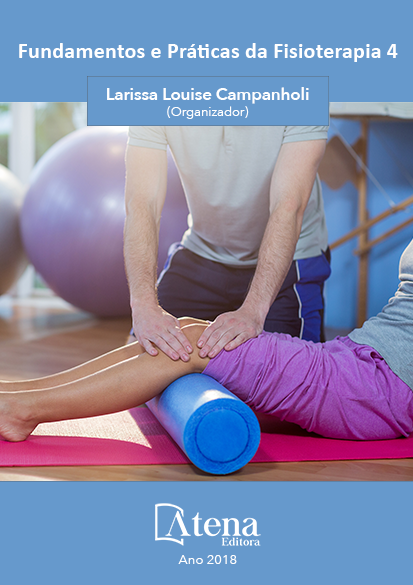
EFEITOS DO TREINAMENTO PROPRIOCEPTIVO SOBRE O CONTROLE NEUROFUNCIONAL E A INCIDÊNCIA DE ENTORSES DE TORNOZELO EM ESGRIMISTAS
Na esgrima há maior incidência
de lesões em membros inferiores, sendo a
entorse de tornozelo a mais prevalente. O
objetivo foi verificar a influência do treinamento
proprioceptivo por 12 semanas sobre o controle
neurofuncional e a incidência de entorses de
tornozelo em esgrimistas. O delineamento foi
quase-experimental, com atletas de 13 a 25
anos e desenvolvido em quatro etapas. Na
primeira etapa foi realizada a familiarização
com teste de força, salto e o registro da
incidência de lesões. Na etapa pré intervenção
foi avaliada força muscular de inversores,
eversores, dorsiflexores e plantiflexores do
tornozelo através do dinamômetro isocinético;
tempo de reação desses músculos no Lunge
Test; controle neuromuscular na Star Excursion
Balance Test (SEBT); desempenho no Drop
Vertical Jump Test e instabilidade do tornozelo
pelo Cumberland Ankle Istability Tools (CAIT). O
treino foi realizado por 12 semanas, três vezes
por semana. No pós intervenção, os testes
foram repetidos, além do registro das lesões.
A análise estatística utilizou teste T pareado,
considerando-se p<0,05. Os resultados
demonstram que a distância alcançada na
SEBT aumentou significativamente nas
oito direções avaliadas, do pré para o pós
intervenção (p≤0,05). Já o tempo de reação, o
torque concêntrico dos músculos avaliados, o
desempenho nos saltos e os escores do CAIT
não apresentaram diferença significativa do pré
para o pós intervenção. Nenhuma entorse de
tornozelo foi registrada nesse período. Concluise
que o treino proprioceptivo foi capaz de
melhorar o controle neuromuscular dinâmico e
diminuir a incidência de entorses de tornozelo
EFEITOS DO TREINAMENTO PROPRIOCEPTIVO SOBRE O CONTROLE NEUROFUNCIONAL E A INCIDÊNCIA DE ENTORSES DE TORNOZELO EM ESGRIMISTAS
-
DOI: atena
-
Palavras-chave: propriocepção, traumatismos em atletas, lesões do tornozelo
-
Keywords: proprioception, injuries in athletes, ankle injuries.
-
Abstract:
In fencing there is a higher
incidence of lower limb injuries, with ankle sprain
being the most prevalent. The objective was to verify the influence of proprioceptive
training for 12 weeks on the neurofunctional control and the incidence of ankle sprains
in fencers. The design was quasi-experimental, with athletes from 13 to 25 years
and developed in four stages. In the first stage, the familiarization with force test was
performed, jump and recorded the incidence of injuries. In the pre-intervention, the
muscular strength of the ankle inversors, eversors, dorsiflexors and plantiflexors through
the isokinetic dynamometer was evaluated; time of reaction of the same muscles in
the Lunge Test; neuromuscular control at the Star Excursion Balance Test (SEBT);
Drop Vertical Jump Test performance and ankle instability by the Cumberland Ankle
Instability Tools (CAIT). The training was performed for 12 weeks, three times a week.
In the post-intervention, the tests were repeated, besides the lesion record. Statistical
analysis used a paired T-test, considering p
reached in the SEBT increased significantly in the eight directions evaluated from
the pre to the post intervention (p≤0.05). However, the reaction time, the concentric
torque, the performance in the jumps and the CAIT scores did not present a significant
difference from the pre to the post intervention. No ankle sprain was recorded during
this period. It was concluded that the proprioceptive training was able to improve the
dynamic neuromuscular control and to reduce the incidence of ankle sprains.
-
Número de páginas: 15
- Gabriela Souza de Vasconcelos
- Anelize Cini
- Rafael Grazioli
- Felipe Minozzo
- Cláudia Silveira Lima


